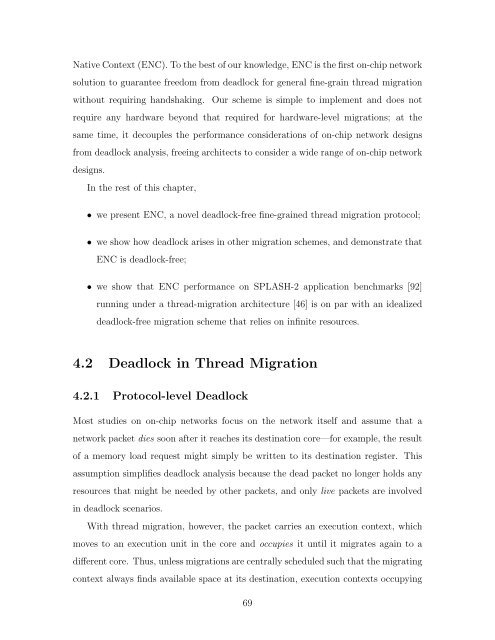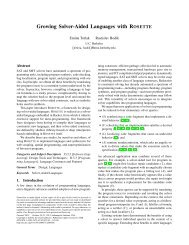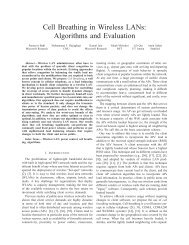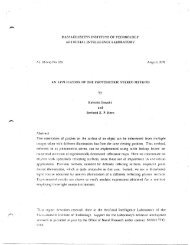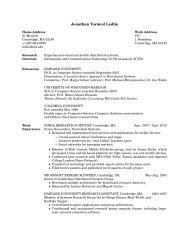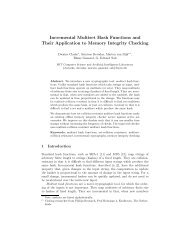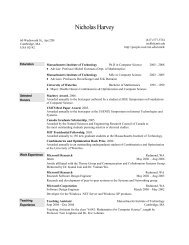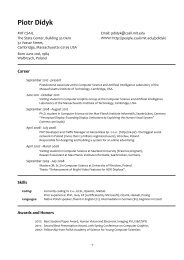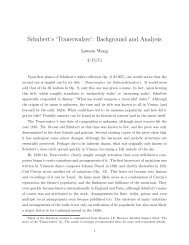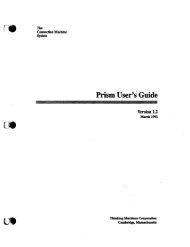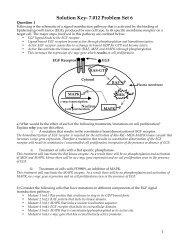On-chip Networks for Manycore Architecture Myong ... - People - MIT
On-chip Networks for Manycore Architecture Myong ... - People - MIT
On-chip Networks for Manycore Architecture Myong ... - People - MIT
You also want an ePaper? Increase the reach of your titles
YUMPU automatically turns print PDFs into web optimized ePapers that Google loves.
Native Context (ENC). To the best of our knowledge, ENC is the first on-<strong>chip</strong> network<br />
solution to guarantee freedom from deadlock <strong>for</strong> general fine-grain thread migration<br />
without requiring handshaking. Our scheme is simple to implement and does not<br />
require any hardware beyond that required <strong>for</strong> hardware-level migrations; at the<br />
same time, it decouples the per<strong>for</strong>mance considerations of on-<strong>chip</strong> network designs<br />
from deadlock analysis, freeing architects to consider a wide range of on-<strong>chip</strong> network<br />
designs.<br />
In the rest of this chapter,<br />
• we present ENC, a novel deadlock-free fine-grained thread migration protocol;<br />
• we show how deadlock arises in other migration schemes, and demonstrate that<br />
ENC is deadlock-free;<br />
• we show that ENC per<strong>for</strong>mance on SPLASH-2 application benchmarks [92]<br />
running under a thread-migration architecture [46] is on par with an idealized<br />
deadlock-free migration scheme that relies on infinite resources.<br />
4.2 Deadlock in Thread Migration<br />
4.2.1 Protocol-level Deadlock<br />
Most studies on on-<strong>chip</strong> networks focus on the network itself and assume that a<br />
network packet dies soon after it reaches its destination core—<strong>for</strong> example, the result<br />
of a memory load request might simply be written to its destination register. This<br />
assumption simplifies deadlock analysis because the dead packet no longer holds any<br />
resources that might be needed by other packets, and only live packets are involved<br />
in deadlock scenarios.<br />
With thread migration, however, the packet carries an execution context, which<br />
moves to an execution unit in the core and occupies it until it migrates again to a<br />
di↵erent core. Thus, unless migrations are centrally scheduled such that the migrating<br />
context always finds available space at its destination, execution contexts occupying<br />
69


